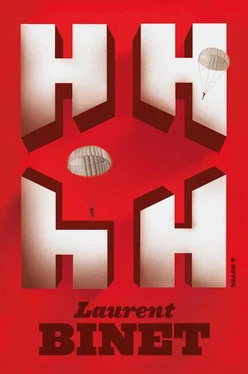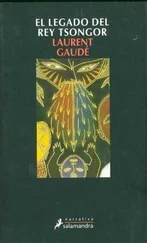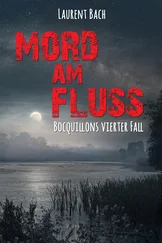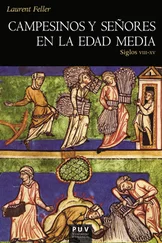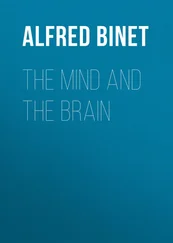Laurent Binet - HHhH
Здесь есть возможность читать онлайн «Laurent Binet - HHhH» весь текст электронной книги совершенно бесплатно (целиком полную версию без сокращений). В некоторых случаях можно слушать аудио, скачать через торрент в формате fb2 и присутствует краткое содержание. Город: New York, Год выпуска: 2012, ISBN: 2012, Издательство: Farrar, Straus and Giroux, Жанр: Историческая проза, на английском языке. Описание произведения, (предисловие) а так же отзывы посетителей доступны на портале библиотеки ЛибКат.
- Название:HHhH
- Автор:
- Издательство:Farrar, Straus and Giroux
- Жанр:
- Год:2012
- Город:New York
- ISBN:978-0-374-16991-6
- Рейтинг книги:3 / 5. Голосов: 1
-
Избранное:Добавить в избранное
- Отзывы:
-
Ваша оценка:
- 60
- 1
- 2
- 3
- 4
- 5
HHhH: краткое содержание, описание и аннотация
Предлагаем к чтению аннотацию, описание, краткое содержание или предисловие (зависит от того, что написал сам автор книги «HHhH»). Если вы не нашли необходимую информацию о книге — напишите в комментариях, мы постараемся отыскать её.
HHhH — читать онлайн бесплатно полную книгу (весь текст) целиком
Ниже представлен текст книги, разбитый по страницам. Система сохранения места последней прочитанной страницы, позволяет с удобством читать онлайн бесплатно книгу «HHhH», без необходимости каждый раз заново искать на чём Вы остановились. Поставьте закладку, и сможете в любой момент перейти на страницу, на которой закончили чтение.
Интервал:
Закладка:
Gabčík smiles at his friend. He puts on his coat, thanks him, and leaves. Outside, night has fallen. The streets are deserted and the snow crunches beneath his feet.
90
On his way back to Žilina, Gabčík makes his decision. At the end of his working day at the factory, he says goodbye to his friends as though nothing is going on. But he doesn’t accompany them, as he usually does, to the bar on the corner. Instead he rushes home, where he takes not a suitcase but a little canvas bag, puts on two coats (one on top of the other) and his soldier’s boots (the most solid boots he owns), then leaves, locking the door behind him. He calls on one of his sisters—the one he’s closest to—and leaves her his keys. She’s one of the few who knows about his plans. She makes him tea and he drinks it in silence. He stands up. She holds him tightly in her arms and cries. Then he heads for the bus station, where he waits for a bus that will take him north, toward the border. He smokes a few cigarettes. He feels perfectly calm. He’s not the only one waiting on the platform, so nobody takes any notice of him despite the fact that he’s dressed too warmly for May. The bus arrives. Gabčík dives inside and grabs a seat. The doors close again. The bus moves off with a roar. Through the window, Gabčík watches Žilina grow smaller. He will never see the town again. The Baroque and Romanesque towers of the old town stand out against the dark horizon that fades away behind him. When Gabčík casts one last glance at Budatín Castle, located at the confluence of two of the three rivers that flow through the town, he cannot know that it will be almost totally destroyed in the years that follow. Nor can he know that he is leaving Slovakia forever.
91
That scene, like the one before it, is perfectly believable and totally made up. How impudent of me to turn a man into a puppet—a man who’s been dead for a long time, who cannot defend himself. To make him drink tea, when it might turn out that he liked only coffee. To make him put on two coats, when perhaps he had only one. To make him take the bus, when he could have taken the train. To decide that he left in the evening, rather than the morning. I am ashamed of myself.
But it could be worse. I spared Kubiš a similarly fanciful treatment, probably because Moravia, where he’s from, is less familiar to me than Slovakia. It was June 1939 when Kubiš went to Poland, from where he reached France—I don’t know how—and enrolled in the Foreign Legion. That’s all I have to say. I don’t know if he went via Kraków, the main rallying point for Czech soldiers who refused the surrender. I suppose he joined the Legion in Agde, in the south of France, with the first infantry battalion of exiled Czechoslovak armed forces. Or had the battalion, whose ranks were swelling daily, already become a regiment? A few months later it will be practically a whole division and will fight alongside the French army during the war. I could write quite a lot about the Czechs in the French army: the 11,000 soldiers, made up of 3,000 volunteers and 8,000 expatriate Czech conscripts, along with the brave pilots, trained at Chartres, who will shoot down or help to shoot down more than 130 enemy planes during the Battle of France… But I’ve said that I don’t want to write a historical handbook. This story is personal. That’s why my visions sometimes get mixed up with the known facts. It’s just how it is.
92
Actually, no: that’s not how it is. That would be too simple. Rereading one of the books that make up the foundation of my research—a collection of witness accounts assembled by a Czech historian, Miroslav Ivanov, under the title The Attack on Heydrich —I become aware, to my horror, of the mistakes I’ve made concerning Gabčík.
First of all, Košice had since November 1938 been part of Hungary, not Czechoslovakia, and the town was occupied by Admiral Horthy’s army, so it’s highly unlikely that Gabčík would have been able to visit his comrades from the 14th Infantry. Second, by May 1, 1939, when he left Slovakia for Poland, he had been working for almost two years in a factory near Trenčín, so in all likelihood he no longer lived in Žilina. The passage where I recount his last glance at the castle seems suddenly ridiculous. In fact, he never quit the army, and it was as a noncommissioned officer that he was working in the chemical factory, whose products were destined for military use. I also forgot to mention that before he left his job, he perpetrated an act of sabotage: he poured acid into some mustard gas, which apparently harmed (how, I’ve no idea) the German army. What a thing to forget! Not only do I deprive Gabčík of his first act of resistance—a minor one, admittedly, but still courageous—but I also omit a link in the great causal chain of human destiny. Gabčík himself explains, in a biographical note written in England when he put himself forward as a candidate for special missions, that he left the country straight after this act of sabotage because he would inevitably have been arrested if he’d stayed.
On the other hand, he did go through Kraków, as I’d supposed. After fighting alongside the Poles during the German attack that started the Second World War, he fled. Perhaps via the Balkans, like a great number of Czechs and Slovaks who went to France, crossing Romania and Greece, then reaching Istanbul, Egypt, and finally Marseilles. Or perhaps he went through the Baltic, which would seem more practical: leaving the port of Gdynia and arriving at Boulogne-sur-Mer, then traveling south. Whatever, I’m sure that this journey is an epic deserving of a whole book to itself. For me, the crowning moment would be his first meeting with Kubiš. How and when did they meet? In Poland? In France? During the journey between the two? Or later, in England? That’s what I would love to know. I’m not sure yet if I’m going to “visualize” (that is, invent!) this meeting or not. If I do, it will be the clinching proof that fiction does not respect anything.
93
A train pulls into the station. In the immense hall of Victoria Station, Colonel Moravec waits on the platform, accompanied by a few other exiled compatriots. A man gets off the train: a serious-looking little man with a mustache and a receding hairline. It’s Beneš, the former president who resigned the day after Munich. But today—July 18, 1939, the date of his arrival in London—he is above all the man who declared, the day after Hácha’s surrender, that the First Czechoslovak Republic still existed, in spite of the attack it had suffered. “The German divisions,” he said, “swept up the concessions torn from us by our enemies and by our allies in the name of peace, justice, and good sense, the gentle reasons invoked at the time of the 1938 crisis. Now the Czechoslovak territory is occupied. But the Republic is not dead. It will continue to fight, even from beyond its own borders.” Beneš, seen by Czechoslovak patriots as the only legitimate president, wants to form a provisional government-in-exile as quickly as possible. A year before the Appeal of June 18, Beneš is a bit like a combination of de Gaulle and Churchill. The spirit of the Resistance is in him.
Unfortunately, it is not yet Churchill who guides the destiny of Britain and the world but the vile Chamberlain, a man whose spinelessness is equaled only by his blindness. He has sent a lowly Foreign Ministry employee to welcome the former president. And the pen pusher’s welcome is not particularly warm either. Barely is Beneš off the train before he is notified of the conditions of his exile: Great Britain agrees to grant him political asylum only on the express condition that he promises to refrain from all political activity. Beneš, who is recognized as the de facto head of the liberation movement both by his friends and his enemies, takes the insult with his customary dignity. He, more than anyone else, will have to put up with Chamberlain’s contemptuous stupidity—and he will do it with absolutely superhuman stoicism. If for this reason only, his historical reputation is almost more imposing than de Gaulle’s.
Читать дальшеИнтервал:
Закладка:
Похожие книги на «HHhH»
Представляем Вашему вниманию похожие книги на «HHhH» списком для выбора. Мы отобрали схожую по названию и смыслу литературу в надежде предоставить читателям больше вариантов отыскать новые, интересные, ещё непрочитанные произведения.
Обсуждение, отзывы о книге «HHhH» и просто собственные мнения читателей. Оставьте ваши комментарии, напишите, что Вы думаете о произведении, его смысле или главных героях. Укажите что конкретно понравилось, а что нет, и почему Вы так считаете.
